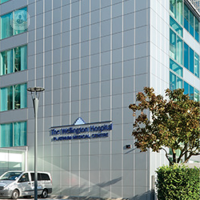Rectal cancer
Mr Tarun Singhal - Colorectal surgery
Created on: 10-21-2015
Updated on: 10-18-2023
Edited by: Carlota Pano
What is rectal cancer?
Rectal cancer is a type of bowel cancer that occurs when cancer cells form in the rectum, the last 6-7 inches of the large intestine connecting the colon to the anus. Bowel cancer, or colorectal cancer, is one of the most common types of cancer in the UK.
What causes rectal cancer?
In most cases, rectal cancer begins as a bowel polyp, which is a growth on the lining of the large intestine or rectum. The majority of bowel polyps remain benign (not cancerous).
However, the mutation of DNA in healthy cells can cause them to grow uncontrollably and outlive normal cells. Cells must undergo numerous mutations before they become cancerous, although it’s not clear what caused these mutations. Cancerous cells can destroy healthy neighbouring cells and spread to other parts of the body.

What factors increase the risk of rectal cancer?
- Age: People over the age of 50 are more likely to develop rectal cancer.
- Other bowel diseases: Inflammatory bowel disease (IBD), Crohn’s disease and ulcerative colitis patients are at higher risk of developing rectal cancer.
- A family history of rectal cancer or other inherited syndromes: Such as Lynch syndrome or familial adenomatous polyposis (FAP). Certain genetics can influence the likelihood of cancerous cells occurring.
- Unhealthy lifestyle: Obesity and diabetes increase the risk of rectal cancer, as well as smoking, a lack of exercise, an unbalanced diet, and regularly consuming alcohol.
- Previous radiation therapy: As a treatment for a past cancer.
What are the symptoms of rectal cancer?
Common symptoms of rectal cancer include:
- Constant change to bowel movements: Diarrhoea, constipation, and more frequent bowel movements can be signs.
- Change in the appearance of the stool: Over a period of time, often appearing narrow and containing blood.
- Prolonged physical pain: Particularly in the abdomen or pelvis.
- Weight loss, tiredness and weakness.
Although these are common signs of rectal cancer and other bowel cancers, these symptoms aren’t exclusive to this disease and are associated with other illnesses, such as haemorrhoids. In some instances, the patient may be asymptomatic and the cancer may only be detectable by screenings.
How is rectal cancer diagnosed?
Rectal cancer can be diagnosed through screening for colorectal cancer. Tests and procedures include:
Physical exams and medical history may also play a role in the diagnosis.
What is the prognosis of rectal cancer?
The likelihood of surviving rectal cancer depends on numerous factors, like the stage and the location of the cancer, the patient’s age and overall health, whether the bowel has been blocked or irreparably damaged, and whether complete removal of the tumour is possible or not. Thanks to advancements in the previous decades, the rate of survival has greatly improved.
How is rectal cancer treated?
Surgery is almost always needed to remove the tumour. A team of doctors usually work together in the treatment of rectal cancer. This team may include a surgical oncologist, a colorectal surgeon, and a gastroenterologist.
Given the small size of the rectum, operating on it can often be a complex procedure. Depending on the case, the surgeon will enter either through the abdomen or the anus to remove the tumour. Minimally invasive surgery can be in option in some cases.
Chemotherapy or radiotherapy may be necessary also, in which case a radiation oncologist would treat the patient.
Can rectal cancer be prevented?
There are certain steps that can be taken to reduce the risk of developing rectal cancer, such as:
- Genetic testing, if there’s a history of rectal cancer in the family
- Regular screenings
- Increased exercise
- Increased consumption of fruit, vegetables and whole grains
- Quitting smoking
- Moderate consumption of alcohol














